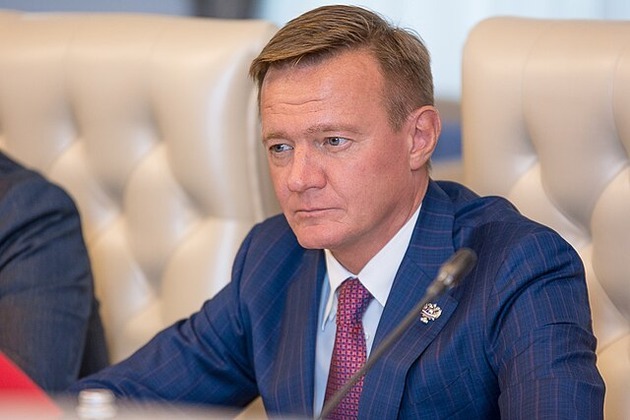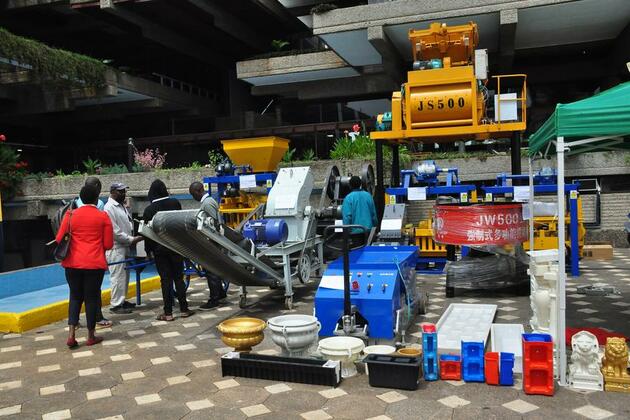Zimbabwes elephant boom fuels conflict alongside conservation wins
RFI
08 Jul 2025, 19:24 GMT+10

Southern Africas elephant population has grown to over 230,000 a conservation success that is creating new problems for people living alongside the animals. Zimbabwe, at the centre of this growth, is trying to balance protecting nature with keeping communities safe and the environment sustainable.
Zimbabwes elephant population has grown steadily over the past decade thanks to intensive national and regional conservation strategies.
According to Tinashe Farawo, spokesperson for theZimbabwe Parks and Wildlife Management Authority(ZimParks), the countrys elephant count has risen from around 84,000-90,000 in 2014 to over 100,000 today, growing by roughly 5 percent per year.
This success is supported by both local initiatives and international partnerships. The European Union, Germany, and theInternational Union for Conservation of Nature(IUCN), among others, have poured millions into biodiversity efforts.
Under its Natural Africa Programme, the EU alone has allocated $36 million toward conservation, sustainable economic development, and improved park management across Southern Africa.
Global conservation talks resume in Rome amid funding deadlock
Zimbabwe is a key player in the regionsTransfrontier Conservation Areas(TFCAs). They are cross-border protected zones that enable wildlife to roam freely across 11 international boundaries.
These include areas like Kavango-Zambezi, Great Limpopo, and Mana Pools, designed to preserve migration corridors for elephants, rhinos, and other species.
The human cost of conservation
With animal populations booming, local communities are facing growing dangers. Farawo notes that elephants are increasingly forced to venture outside protected areas in search of food and water, bringing them into direct conflict with people.
Weve translocated over 200 elephants in the Save Valley over the last five years, says Farawo. But its a drop in the ocean. Long-term solutions are expensive and require major investment.
Tensions are high in places like Hwange, Chiredzi, Kariba and Mbire, where elephants trample crops and predators attack livestock or even villagers.
Domingos Gove, Director for Food, Agriculture, and Natural Resources at the SADC Secretariat, reported that dozens of people are killed by wildlife annually across the region.
Traditional leaders and local advocates stress the need for communities to see tangible benefits from conservation, such as employment, schools, clinics, and infrastructure if they are to become true stewards of the land.
Building community-led solutions
Professor Andrew Nambota, head of thePeace Parks Foundation, says meaningful local participation is essential.
Communities are not just stakeholders they're custodians. They should be at the decision-making table and drive economic development in their regions.
Itai Chibaya, Country Director for WWF Zimbabwe, agrees.
Rwanda adopts 70 South African white rhinos under rewilding initiative
In the Hwange-Kazuma-Chobe corridor, sustainable conservation supports livelihoods, he says. Nature tourism accounts for up to 10 percent of GDP in several SADC countries and supports over three million jobs, including many for youth and women.
But Chibaya warns that climate change, underfunded projects, and fragmented habitats from mining and infrastructure threaten long-term sustainability. WWF and other partners are working to develop ecotourism models that return value directly to villages, not just capital cities.
Call for new conservation models
At the recent SADC Transfrontier Conservation Areas Summit in Harare held under the theme 25 Years of Cooperation for Regional Integration and Sustainable Development leaders called for broader, more inclusive conservation strategies.
President Emmerson Mnangagwa highlighted Zimbabwes launch of a blockchain-based national carbon registry, aimed at generating transparent revenue through climate action.
This shows our determination to contribute to new global standards with accountability and sustainability, he said.
Illegal logging threatens livelihoods of hundreds of Ghanaian women
Experts argue that carbon credits from reforestation and other efforts could become a critical funding source for conservation if communities are properly included in benefit-sharing models.
Meanwhile, Zimbabwe holds over 130 tonnes of ivory from natural deaths and anti-poaching operations worth an estimated $600 million. Yet international bans under CITES prevent the country from selling the stockpile, limiting potential funding for future conservation work.
As the SADC summit concluded, leaders urged member states to develop tailored solutions for rising human-wildlife conflict and push for legislative and financial reforms to ensure the long-term viability of shared conservation goals.
Originally published on RFI
 Share
Share
 Tweet
Tweet
 Share
Share
 Flip
Flip
 Email
Email
Watch latest videos
Subscribe and Follow
Get a daily dose of Zimbabwe Star news through our daily email, its complimentary and keeps you fully up to date with world and business news as well.
News RELEASES
Publish news of your business, community or sports group, personnel appointments, major event and more by submitting a news release to Zimbabwe Star.
More InformationInternational
SectionPutin fires transport chief, later found dead in suspected suicide
MOSCOW, Russia: Just hours after his sudden dismissal by President Vladimir Putin, Russia's former transport minister, Roman Starovoit,...
Thousands gather in Himalayas as Dalai Lama celebrates 90th birthday
DHARAMSHALA, India: The Dalai Lama turned 90 on July 6, celebrated by thousands of followers in the Himalayan town of Dharamshala,...
Fans perform WWII-era Fascist salute at Marko Perković’s mega concert
ZAGREB, Croatia: A massive concert by popular Croatian singer Marko Perković, known by his stage name Thompson, has drawn widespread...
U.S. Treasury Secretary says Musk should steer clear of politics
WASHINGTON, D.C.: Elon Musk's entry into the political arena is drawing pushback from top U.S. officials and investors, as his decision...
TikTok building U.S.-only app amid pressure to finalise sale
CULVER CITY, California: TikTok is preparing to roll out a separate version of its app for U.S. users, as efforts to secure a sale...
Trump defends use of 'Shylock,' citing ignorance of slur
WASHINGTON, D.C.: President Donald Trump claimed he was unaware that the term shylock is regarded as antisemitic when he used it in...
Africa
SectionIndia's EV surge needs a home-grown magnet fix: Report
New Delhi [India], July 9 (ANI): While India aspires to become a global electric vehicle (EV) hub, the current crisis because of China's...
Brook reclaims top Test batter spot, Gill rises to career-best No.6 in ICC Rankings
Dubai [UAE], July 9 (ANI): England's right-hand batter Harry Brook replaced his teammate Joe Root to reclaim the No.1 Test batter's...
There is global unanimity that India is currently one of the leaders of the world: BJP's Bhandari on PM Modi conferred with 26 state honours
New Delhi [India], July 9 (ANI): Bharatiya Janata Party (BJP) leader Pradeep Bhandari on Wednesday hailed Prime Minister Narendra Modi's...
Russia eyes deeper trade ties with Africa - export center
Officials in Moscow have urged diversification beyond wheat and oil Africa is becoming...
Russia eyes deeper trade ties with Africa Export center
Officials in Moscow have urged diversification beyond wheat and oil Africa is becoming an increasingly important market for Russian...
(Hello Africa) Kenyan visitors flock to Chinese products at annual trade expo
Over 100 exhibitors, including more than 80 from China, are showcasing their products at the 10th edition of China Trade Week, which...













